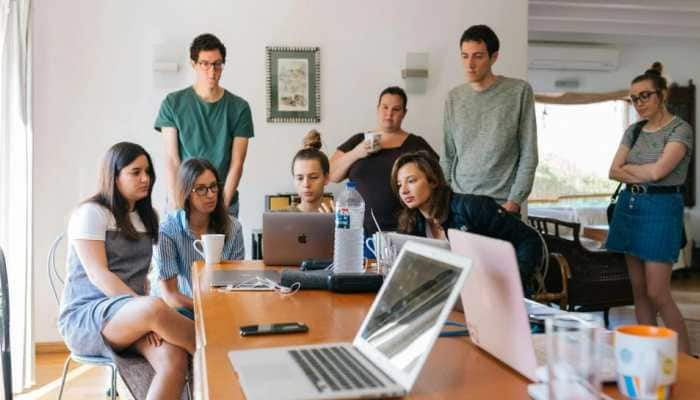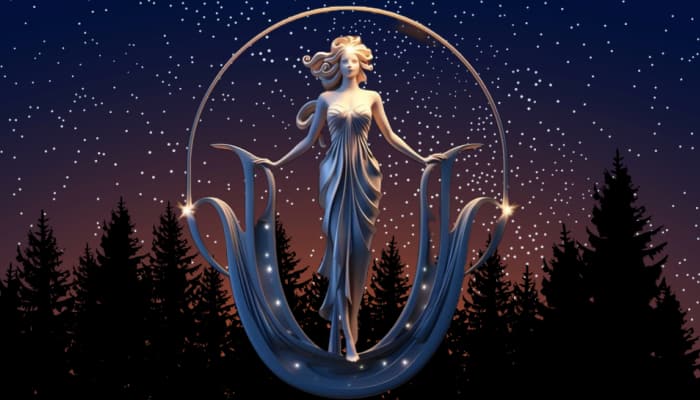The Mozart of Madras
I have fought, argued, held eternal grudges against anyone who didn’t agree with me over the greatness of Rahman, the Mozart of Madras. From buying the first audio release, to listening to his music all day long, it’s after a long time that I sit to rethink and share my thoughts on the wizard, who weaves spells through his music.
Trending Photos
I have fought, argued, held eternal grudges against anyone who didn’t agree with me over the greatness of Rahman, the Mozart of Madras. From buying the first audio release, to listening to his music all day long, it’s after a long time that I sit to rethink and share my thoughts on the wizard, who weaves spells through his music. The name needs no introduction. It stands for melody, energy – a heady mix of modern and traditional form of music. It also symbolises the man who has stirred emotions of love, patriotism, and many unspoken feelings by his music. A tech-savvy musician, who mixes charms of musical notes with technology to create a new genre of listeners. A man who has gained international acclaims yet remains humble, truthful, with an air of innocence.
Born A S Dileep Kumar, A R Rahman turns 42-year-old today. Birth and personal life
Dileep was born on January 6th, 1966 in Chennai to Late R K Shekhar and Kasturi (now Kareema Begum). He was introduced to music at an early age and in a short span of time became the best-selling recording artiste even surpassing Elvis, Beatles and Jackson.
Being second among 4 children, Rahman has three sisters, Rehana (Kanchana), Fatima Talat (Bala) and Israth.
At the age of 29, Rahman had an arranged marriage to the beautiful, demure Kutchi speaking wife, Saira in 1995. They have three children, two daughters namely Khatija and Raheema and a son – Rumi. Early years
Life is a drama – true in the case of young Dileep, who lost his father while he was just nine years old. He became the sole breadwinner of his family by playing instruments in bands and lending the musical instruments owned by his father to various troops. A school dropout, this little precocious child soon became a touring tyro musician with tabla maestro Zakir Hussain and various other orchestras.
Dileep converted to Islam at the age of 20. “My dad went through a lot of problems. He was sick and my childhood was a disaster… I spent most of my childhood in hospitals. There came a stage when the family was almost down. We met a pir sahab at that time. It is inexplicable. It just happened. My idea of God coincided with all this.” Dileep became Allah Rakha Rahman, his mother Kasturi is now Kareema Begum. “Okay, this was something that was bound to happen”, he says.
Soon, Rahman left his home to study music at Trinity College of Music, Oxford University. With a degree in Western Classical Music, he returned to Madras to join an Ad agency in 1987. He wrote some 300 jingles for radio and TV commercials – winning several industry awards. He also released his first album of Muslim devotional songs, titled Deen Isai Malai and the English album, Set Me Free. Both went unnoticed in the market. Rising from ‘Roja’
The maestro’s debut in the film industry came in 1992 at the age of 26. Director Mani Ratnam, approached Rahman to compose the score and soundtrack for Tamil film Roja. The music broke all the records and went on to become Time’s top ten music tracks of all time. It also fetched him first National Film Award for best music direction, an award that was given for the first time to a debutante music director.
The success of Roja was followed by Tamil movies like Bombay (dubbed in Hindi), Kadhalan, Indira, Minsaara Kanavu, Muthu and Love Birds, which gained him accolades even from non-Tamil fans who swayed to the freshness of tracks and cared little about the literals.
Rahman’s versatility in classical, folk, jazz, reggae, soft rock and other styles in his pieces soon made him stand out in the dull Hindi cinema which still used the quintessential ‘dholak’ for the ‘taal’ and was also reluctant to experiment with new technologies.
It was maverick director Ram Gopal Varma’s movie Rangeela, which gave Rahman his first break in Bollywood in 1995. Though the movie failed to create waves at box-office, people danced and hummed to the tunes of famous title tracks – ‘Rangeela Re’ and ‘Tanha Tanha’. The film later went on to become Rahman`s biggest hit and the most original score of that year. A true experimentalist
Rahman has many a hit movie scores, some were even re-made in other languages.
His prowess in South film industry is unparalleled. But his music score in Hindi films like ‘Bombay’, ‘Rangeela’, ‘Dil Se’, ‘Lagaan’, ‘Yuva’, Saathiya’ and ‘Rang De Basanti’ are timeless. For each time you listen to a ‘Tu Hi Re’, ‘Ae Nazneen Suno Na’, ‘Rangeela Re’, ‘Mitwa’, ‘Humdum Suniyo Re’, ‘Khuda Hafiz’, ‘Paathshaala’ or ‘Rubaru’ it seems as if you hear a new beat or a new note, which was not heard last time.
Unlike other music directors, Rahman’s uncertainty of many a factor about his music makes his every releases worth the wait. He has tested the limits of playback singers and moulded them accordingly, even the untrained ones.
Rahman had established singers like Asha Bhosle convey that titillating effect in ‘Tanha Tanha’ and brought out the warmth of Chitra’s voice in ‘Kehna Hi Kya’ from Bombay. The song ‘Jiya Jale’ from the movie Dil Se, sung by ageing Lata Mangeshkar expressed restlessness and passion. The exuberance of Sukhwinder Singh’s voice in Chaiyya Chaiyya sets the parties rolling even after completing a decade of its release.
Rahman himself sang the new version of Vande Matram with Nusrat Fateh Ali Khan in 1997, marking the 50th year of Indian independence.
Rahman-Ratnam combo
Rahman who has worked with Mani Ratnam in at least nine movies – Roja, Thiruda Thiruda, Bombay, Iruvar/Iddaru, Dil Se, Alaipayuthey/Sakhi/Sathiya, Kannathil Muthamittal/ Amrutha, Ayutha Ezhuthu/Yuva, Guru; has always given chart topping numbers. The strength of the music of Dil Se made it the first Asian film to enter the UK Top 10.
“Every time we work together it is like our first film. We understand each other perfectly”, Ratnam quips.Music is life
An otherwise shy Rahman lives, eats and sleeps music. The wizard who has made a record sale of 200 million cassettes worldwide is not bothered about the quantity, but the quality, and the satisfaction that he derives out of his work.
Rahman’s personal studio, Panchathan Record Inn, which he started in 1989, was the centre of his learning and experimentation with different kinds of sounds. The studio was put out of use in 2005, after which he shifted to his new studio named as A M Studio. The new studio is considered to be the most developed, equipped and high tech studio of Asia. Rahman also launched his own music label, KM Musiq in 2006.
Known for recording at night, when the world sleeps, he is dedicated yet doesn’t fuss like other music directors. Rahman takes his own sweet time to compose songs and prefers recording in his Madras studio, which is a major hassle for Bollywood producers. Nevertheless the results are worth the trouble.
The people who have worked with the genius have all praises for his sheer genius. Vairamuthu, the lyricist, with whom Rahman shares a special bond, said, "Rahman has some God given gift in him. He is like a rare pearl in ocean of music. When one composes a song he is always worried as to whether the song will click or not. But Rahman is one composer who does not care about the commercial success of the song. He is always confident that if a number is composed with a good heart and self-confidence it will be a big hit.” From Bollywood to Broadway
The maestro, who has created many an unending spells, holds a special place in the hearts of music aficionados across the world. Rahman got international acclaim in 2002, when he composed his maiden stage production Bombay Dreams, produced by Andrew Lloyd Weber. He also composed the music for The Lord of the Rings theatre production along with the Finnish folk music band Värttinä. He has composed the piece "Raga`s Dance" for Vanessa Mae`s album Choreography.
Rahman also composed the score for the Chinese film Warriors of Heaven and Earth in 2003. He composed the music of Shekhar Kapur’s sequel to Elizabeth, Elizabeth: The Golden Age (2007) alongwith Craig Armstrong.
Taking time out from his hectic lifestyle, Rahman has set up the ‘A R Rahman Foundation’ to eradicate poverty. This includes setting up and partnering with educational institutions across India to provide education to children who do not have easy access to schools or funds.
Awards and Recognitions
With a career spanning 16 years, Rahman has nearly 100 movies to his credit as a music director. He was conferred Padma Shri in the year 2000. He also has four National Awards for music directions, apart from other numerous awards conferred on him.







)
)
)
)
)
)
)
)
)
)
